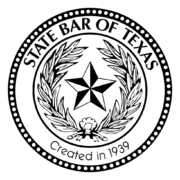The Ultimate Guide to Bail in Texas
Without fail, most of the questions I get are about bail. There is a lot of confusion about the right to bail, due in large part to the shifting attitudes we see right now in the Harris County criminal courts. This guide is designed to explain the genesis and purpose of bail in Texas, the right to bail, the law permitting denial of bail, and the practical steps that must be taken to obtain reasonable bail in Harris County courts. In addition, I will explain the purpose and dangers of bail conditions and the administration of these conditions by the Harris County pretrial department.
Facing Criminal Charges in Texas and Have Questions? I’m Houston Criminal Defense Attorney Ed Chernoff, And I Can Protect You. Call My Office Today at 713-222-9141 or Fill Out My Online Contact Form For a Free Consultation About Your Case.
What is Bail?
Bail is described by Texas Code of Criminal Procedure §17.01 as security given by the accused that he will appear and answer before the proper court for the accusation brought against him. This includes cash, a bail bond, or personal bond. In effect, bail represents collateral for a promise by the accused to show up in court as instructed. A bail bond is a promise by a third party that the accused will show in court. If the accused doesn’t show up to court, he forfeits his right to the cash he deposited, or the bondsman is on the hook to pay the promised bail amount.
What is the difference between bail and bond?
The words are often used interchangeably, but they mean different things. Bail is the security required for release. A bond is a promise, in this case, to appear in court as instructed. If cash is deposited with the Harris County Sheriff for release, this is known as a cash bond. If a third party (i.e. Bail bondsman) makes a promise that an accused will show, it is referred to as a bail bond since what is being deposited with the Sheriff is not cash, but a piece of paper promising to pay the county if the accused doesn’t appear in court. Typically, a bail bondsman will undertake this promise for a fee and if the bail amount is large, will usually require the accused to sign over some collateral to cover any loss in the event of forfeiture.
What is a personal bond?
A personal bond sometimes called a PR(Personal Recognizance) bond is the release of the accused without cash, bail bond, or other security. Basically, it is the release of the defendant from jail based solely on his word that he will come to court. Texas Code of Criminal Procedure §17.03. An accused is not entitled to a PR bond, but a magistrate or Judge may release an accused on a personal bond if the defendant is eligible and the magistrate or Judge thinks it’s a good idea.
This is one of the areas that has changed in recent years. Prior to recent litigation attacking Harris County bail policies, it was unusual for a criminal judge to release an accused on his own recognizance. Now it has become commonplace for misdemeanors and a real possibility in felonies.
An individual is not eligible to be released on a personal bond if 1) he is charged with an offense involving violence; or 2) if already on bail or probation for a violent offense, and is charged with a felony or misdemeanor assault, deadly conduct, terroristic threat, or disorderly conduct involving a firearm. There are a bunch of crimes considered to be violent offenses, including murder, kidnapping, sexual assault of a child, family violence, sexual assault, aggravated assault, aggravated robbery, injury to a child or elderly, and trafficking in prostitution.
A magistrate must release a defendant on personal bond with certain conditions if the defendant has an intellectual disability or mental illness and is not charged with or has been convicted of a violent offense. Article 17.032(b).
Some Judges are liberal in handing out PR bonds and some are still a bit reticent. In practice, a criminal lawyer should always request a PR bond for a client with an eligible case and who is unable to make the present bail. However, whether a PR bond is granted is fully within the discretion of the court.
I don’t have the words to express how grateful we are for Mr. Chernoff and his team. They always kept us updated and were available for any questions we had. They were able to obtain the best possible outcome. I would definitely use him again and highly recommend him.
Ed saved my life and career. Incredible lawyer if you’re in trouble.
He put my fears at ease and helped me get my case dismissed and my life back on track. I would highly recommend hiring Ed and letting him do the same for you.
Do you have the right to Bail?
The right to bail is addressed in both the United States and Texas Constitutions. Despite popular belief, the 8th Amendment to the U.S. Constitution only prohibits “excessive bail”. What is “excessive” has been litigated since 1792 and there are several offenses, Federal and State, which have been considered severe enough to prohibit bail altogether.
Arguably, the Texas Constitution provides greater protection. Article I, Section 11 states that “all prisoners shall be bailable by sufficient sureties, unless for capital offenses”. See also, Texas Code of Criminal Procedure, Art. 1.07. This clearly provides a right to bail, but there are still circumstances other than Capital Murder where bail can be denied.
When can Bail be Denied?
The Texas Constitution permits the Judge to deny bail in certain situations. Other than Capital Murder, Texas Constitution, Article I, Section 11a states that bail may be refused to:
1) any person accused of a felony, who has been twice convicted of a felony (an habitual);
2) any person accused of a felony who is already on bail for a prior felony;
3) any person accused of a felony involving the use of a deadly weapon with at least one prior felony, and
4) any person accused of a violent or sexual offense while on probation or parole.
In addition, bail can be denied to an accused who is charged with a felony or an offense involving family violence, whose bail had been subsequently revoked or forfeited for a violation of a condition of his release. Texas Constitution, Section 11b. Bail can also be denied to someone who violates an order for Emergency Protection(MOEP). Id, Section 11c.
The Texas state legislature has crafted procedures that adopt these constitutional powers. See, Article 17.153 (sexual offense involving a child under 14 years of age), Article 17.152, (family violence).
What does this mean as a practical matter? Frankly, it depends on the Judge. Some Judges in Harris County jump at the chance to “no bond” somebody. They all have a cheat sheet instructing them on the exact powers they have in this regard. However, most Judges know that they can’t keep an individual locked up forever. Even if the Constitution and Code of Criminal Procedure gives them the power, there are limitations. The U.S. Constitution’s right to due process and speedy trial may get in the way if an individual is held without bail for too long. In addition, the Texas Constitution and Code of Criminal Procedure require the Judge to follow certain procedures if they want to deny bail.
What is the Procedure for Denial of Bail?
The Texas Constitution provides due process to those denied bail. In cases where bail is denied because of multiple or prior felonies as described by Section 11a the State must request denial of bail by motion and the Judge must sign the order denying bail within seven days. In practice this means a hearing must be held within seven calendar days requiring the State to prove the guilt of the accused by substantial evidence. Any failure to abide by these time limits means the Judge must relent and set bail.
In addition, even if the Judge issues a no bond order, it must be set aside, and bail approved for someone with multiple felonies if the accused is not tried within 60 days of the date of denial. Texas Constitution, Article I, 11a. (Everyone in jail is aware of this magical 60 days.)
In cases where bail is denied because of violation of a condition of release or violation of protective order, a hearing must be scheduled and the Judge must find by a preponderance of evidence that a condition of her order has been violated and the condition relates to the safety of the victim or community. Code of Criminal Procedure, Art. 17.152. No time limit is ascribed to this hearing, but a good lawyer will schedule it immediately.
These hearings are not easy on the State. The rules of evidence apply which means the State can’t just proffer what they think the evidence will show. For instance, in situations where a new felony is alleged, the State must produce witnesses who can testify to facts that make up the offense. This turns the hearing into a preliminary trial. Gathering witnesses and presenting them is sometimes not possible in seven days, and failure to do so means that bail must be granted.
Texas Code of Criminal Procedure Article 17.151 provides some further relief to a defendant sitting in jail without bail. Under this provision, if the State is “not ready for trial” within 90 days the Judge must release the defendant on a personal bond or reduce bail. As a practical matter, the State will always claim to be “ready for trial” unless they have not yet indicted the defendant, so this becomes a time requirement for indictment. In addition, there is a proviso provided in Article 17.151 stating that it does not apply to an individual being detained for a violation of a condition of bail that relates to the safety of the victim or community. Art. 17.151(4).
This is a lot of information so let’s condense it into a cheat sheet:
- Accused who is no bonded because of a prior felony(s) can get bail unless:
- State requests no bond by motion;
- Hearing and order must be completed within 7 days;
- Must be tried within 60 days.
- Accused who is no bonded because of violation of bail condition can get bail unless:
- State requests no bond by motion;
- After the hearing, a judge determines by a preponderance of evidence that the accused violated a condition of release that relates to the safety of the victim or community.
- Accused who is no bonded because of violation of protective order or condition of release in family violence case can get bail unless:
- State requests no bond by motion;
- After the hearing, Judge determines by a preponderance of the evidence that the accused violated the order or condition of release.
Chernoff Law is Committed to Answering Your Questions. I Offer a Free Consultation and I’ll Gladly Discuss Your Case With You at Your Convenience. Contact Me Today to Schedule an Appointment.
What is the Procedure for Denial in Capital Cases?
The Texas Constitution Article I, Section 11 states that that an individual held to answer for a Capital Murder may be held without bail, when “proof is evident”. “Proof is evident” means that the evidence is clear and strong, leading a well-guarded and dispassionate judgment to the conclusion that the offense of capital murder has been committed; that the accused is the guilty party; and that the accused will not only be convicted but that the jury will return findings which will require a sentence of death. Ex Parte Mitchell, 601 S.W.2d 376 (Tex. Crim. App. 1980) It is the State’s burden to prove these elements.
As a practical matter, this means the Capital defendant denied bail has the right to a hearing and in situations where the State will not be seeking the death penalty is likely entitled to bail. Of course, there are defendants charged with this offense who may be denied bail because of a prior felony record. (See above)
The hearing does not have a time limitation attached to it, but it is in everybody’s best interest to have it as soon as practicable. It might be to the defendant’s advantage to wait until the State decides whether it will be seeking the death penalty. The Judge has no input into this decision. Even if bail is granted, it may turn out to be a fragile victory since the bail amount is usually quite high in Capital cases.
How is Bail Amount Determined?
In Harris County, the process for setting bail has changed since the abandonment of the bail schedule. Previously, a charge would have a bail amount attached to it whether the defendant was under arrest or an arrest warrant issued. A magistrate had authority to raise or lower the bail of a defendant depending on the circumstances dictated by Texas Code of Criminal Procedure Article 17.15. This process was alleged to be a violation of due process and abandoned.
Now everyone arrested or subject to an arrest warrant is “referred to a magistrate”. In practical terms, this means that everyone is “no bonded”. This has created real problems. I get calls all the time from people who have been notified that they have an arrest warrant but have no bond. Previously, these people could just go to a bondsman and make bail without being formally arrested. Now they have two choices.
A person with an arrest warrant can turn himself in and wait to see a magistrate. A magistrate is appointed by the Judges of Harris County as an agent of the District and County courts. Anyone under arrest for a felony criminal offense must be taken before a magistrate within 48 hours. Tex. Code Crim. Pro. Art. 14.06. The magistrate must determine whether probable cause exists for a charge, inform the defendant of his rights, issue a Magistrate’s Order of Emergency Protection in family violence case and set bail or release the defendant on a personal bond. Tex. Code Crim Pro. Art. 15.17.
The second thing a person with an arrest warrant can do is go with his lawyer and personally see the Judge assigned to his case. This is known as a “walk thru”. The assigned Judge will perform all the duties of his magistrate. Most Judges will allow the defendant’s lawyer to arrange for a hearing in his court and permit the bondsman to take the defendant over to the jail and make his bail without formal arrest. I say most because there are currently two District Court Judges who will not allow a “walk thru” and two more who make it procedurally impossible to do so.
However, even in those courts that don’t allow a “walk thru”, the defendant can surrender himself at the Harris County Processing Center while the District Judge is in session and his lawyer can request bail in court. This will speed up the processing time. In addition, the lawyer can surrender his client to the bailiff of the assigned court and get bail set. This is necessary in cases where a Magistrate’s Order of Emergency Protection must be issued. Otherwise, his client will still have to wait to see a magistrate.
For an individual arrested by a police officer before formal charges have been filed, he must simply tolerate the wait. Unless arrested on a warrant, this police officer will call the District Attorney’s office and authorize charges. The defendant will then be brought to the Harris County Processing Center or the jail belonging to the agency who made the arrest, and eventually transferred to the Harris County Processing Center to see a magistrate. At some point the magistrate will set bail. The sheriff will acknowledge the bail and the defendant will “make the computer”. A bondsman can then start the process of bailing out the defendant. Typically, this will take 18 – 24 hours. If a defendant, arrested on a felony without warrant, waits longer than 48 hours to see a magistrate, he must be released on a bond no greater than $10,000 or by personal bond if he doesn’t have the funds. The time limit is 24 hours and $5,000 for a misdemeanor arrest. Article 17.033
Texas Code of Criminal Procedure, Article 17.15 discusses the rules Judges and magistrates must follow in setting the amount of bail. It is hardly predictable. A magistrate must look to the nature of the offense, the defendant’s ability to make bail, the future safety of any victim, the criminal history of the defendant and the citizenship status of the defendant. A magistrate cannot give bail to someone who is charged with a felony and already on bail for a felony. Only the District Judge assigned the case can make that decision.
Typically, the magistrate at a probable cause hearing will make the initial bail decision and although defendants are now being represented by the public defender’s office at these proceedings, the focus will be on the nature of the offense above all. This is true for the District Court Judge as well. For instance, a Judge is likely to give a much larger bail to someone charged with Aggravated Robbery than Burglary.
Many District Judges want to know a little about the defendant before making a bail decision. Often, I am asked about my client’s work history, living arrangements and family responsibilities. I am rarely asked how much bail my client can make, though I will usually volunteer an amount. The Judge is always interested in my client’s criminal history and substance of the allegation so if I can ameliorate the evidence somewhat, I do.
Bottom line is that the Judge’s decision on bail amount is fickle. I hesitate to say arbitrary, because most Judges have at least a vague amount of what they want based on the offense charged. Whether they go up or down from that depends on other information and sometimes their mood.
Can the Judge raise the Bail Amount while the case is Pending?
Yes. Art. 17.09, Sec. 3 allows the Judge to raise the amount of bail and take a defendant into custody if he finds the bond insufficient or “for any other good and sufficient cause”. This language should send chills down the spine of any defendant and criminal defense attorney, since it appears to leave the decision solely up to the Judge to determine what is “sufficient cause”.
There is at least one Judge in Harris County who took the opportunity afforded to her by Art. 17.09 literally. She regularly raised bonds on individuals who appeared before her on the preliminary appearance and sent them back to the holdover. These people had usually made the bail set by the magistrate and were brought to court too quick to hire counsel. Unrepresented and unaware of the Judge’s proclivities, these people were rearrested. This activity was shocking enough that complaints were made to the Texas Board of Judicial Conduct, which seemed to change her policy. Nevertheless, an accused should be aware of this possibility and, if at all possible, hire a lawyer before he makes his first appearance.
Usually, a Judge will raise bail only when a defendant is alleged to have violated conditions or failed to show in court. Sometimes a defendant will show his ass in court so much that the Judge doesn’t have a choice but to put him in custody. However, bail is unlikely to be raised for any defendant who shows when he is supposed to and complies with his conditions.
A judge may not raise or revoke bail simply because a defendant asks for appointed counsel or decides to represent himself. Art. 17.09, Sec. 4. This may seem obvious, but some of us criminal lawyers have been around long enough to remember Judges who did just that, including in misdemeanor courts. Section 4 was added in 2007 to address these abuses.
Can the Judge reduce the Bail Amount while the case is Pending?
Of course. Article 17.09, Sec. 3 also allows the Judge to lower the bail amount. This happens all the time when an individual has remained in jail for an extended period because he is unable to make the original bail set.
Request for a reduction in bail is usually informal. It will be obvious from the record that the defendant is in jail and for how long. The Judge usually wants to know what efforts have been made to make the set bail and what amount can be made. She may also ask to be reminded of the particulars of the allegation and criminal background of the defendant, which will be provided by the prosecution. If the defendant can make no bail amount, and is eligible for a PR bond, it should be requested.
In theory a criminal lawyer could ask for bail reduction as many times as he wants and some of my clients ask me to do this. However, it does no good to ask for a bail reduction every time the defendant is brought to court. Most Judges take good notes of these interactions and are not going to reduce on the second and third request absent some changed circumstance that makes the new request relevant. A Judge is not going to admit the decision she made the first time was wrong and will stop listening to the criminal lawyer’s requests if it is clear he is just being a squeaky wheel. Keep in mind however that time in jail is a changed circumstance. If an accused has been sitting in jail for a year waiting for a trial, this should be considered by the Court when deciding on whether bail is still reasonable.
What are Bail Conditions?
The Code of Criminal Procedure allows the Judge to set any reasonable condition of bond that relates to the safety of a victim or safety to the community. Tex. Code Crim. Pro, Article 17.40. This includes forbidding the defendant from communicating or contacting the alleged victim, including a child. See, Art. 17.41.
Here is a list of conditions that the Code of Criminal Procedure specifically authorizes the Court to impose for bail:
- Home curfew and electronic monitoring. Art. 17.43
- Home confinement with electronic monitoring. Art. 17.44
- Drug testing. Art. 17.44
- Vehicle Interlock in intoxication offense. Art. 17.441
- AIDS and HIV Classes. Art. 17.45
- DNA specimen. Art. 17.47
- Global positioning monitor system in Family violence offenses. Art. 17.49
As noted, these conditions are not exhaustive, since “any condition” can be imposed if the Court deems it necessary for “safety”. For instance, the court can require a defendant to refrain from drinking alcohol or using illegal drugs, prohibit possession of a firearm and limit travel out of county during the pendency of the case. In theory, a Judge could draft any condition he wants, if he can internally justify a reason, but most Judges don’t go rogue on conditions.
The implementation of home curfew and home confinement, along with electronic monitoring has become endemic. It is frankly a pet peeve of mine. It is reasonable to impose home confinement on some defendants. However, Judges are imposing this condition far too much. I believe it is sometimes used as a “gotcha” in situations where the Judge knows she must give bail but doesn’t want to. I also believe electronic monitoring is used by some Judges to cover their behinds. I sympathize that no Judge wants to be the one who reads a story in the newspaper about one of their defendants committing an offense while out on bail. This may affect a reelection bid and imposition of home confinement allows him to argue that he did all he could under the current state of the law. However, not everyonerequires an electronic monitor, and I would argue that it should not be used as a fallback provision.
If I am editorializing, let me make this argument that the proliferation of bail conditions and administration has done the opposite of what the courts are hoping to avoid. There is a lot of community angst about murder and capital murder defendants being released to commit new crimes. However, bail conditions like home confinement actually allow defendants to bail out who previously would not have been able, which is contrary to what some Judge’s desire.
In the old days, bondsmen had a lot at stake if his client did not show in court. It was important to them to make sure their clients kept on the straight and narrow. They knew where they lived, where they worked and required them to check in regularly. The fees charged by the bondsmen reflected this increased diligence and risk. They wouldn’t make a bond if the risk was too great. Now a bondsman is covered. If they know that a Judge is going to impose conditions like home confinement, they can charge almost anything they want. They can charge 2% down on a $300,000 bond, because they know that if the client leaves his house his bond will be revoked, not forfeited. The bondsman makes his money without risk, which is good business.
Home confinement and home curfew is more of a burden than most people realize. Anyone who went through the horror of quarantine knows that home jail is only amusing for a short period of time. Eventually cabin fever sets in. After six months my clients tend to forget what it was like in the Harris County jail and start dreaming of taking a walk around the block. Judges seem to forget that some people don’t have help at home and home confinement prevents them from attending children’s functions, going to the grocery store, or getting a simple haircut. A curfew is moderately better because it allows a defendant to work, but errands are usually prohibited by the curfew.
This is not a reason for any of my clients to violate a home confinement or curfew condition, but they sometimes do, and I am always having to fight a warrant for their arrest irrespective of whether they broke the violation to do something nefarious. It’s frustrating, time consuming and unnecessary. If the Judge is intent on imposing this condition, a criminal defense attorney needs to be real with his client about the burden and make sure that the curfew reflect his actual time needs. He also needs to get it removed as soon as possible.
How are Bail Conditions Administered?
In Harris County, Harris County Pretrial Services supervises and monitors conditions of bond for defendants released on personal bond. The Harris County Community Supervision(HCCSD), Bond Supervision Unit supervises defendants on surety or cash bond. The defendant is ordered to comply with the rules of each respective department, and this usually means regular reporting. Drug testing is done on a random basis. Electronic monitoring is done by an adjunct to the department who is charged with monitoring the movement of the defendant and reporting any violation. All District Courts have a liaison from HCCSD who works with the court on administration. Some courts have a pretrial officer assigned to their court. They will provide the defendant all the information he needs to comply with their conditions, including contact information.
In my experience, it is not always easy to get in touch with the respective departments when issues arise. This is not their fault. Their workload is unconscionable. I advise my clients to keep in constant touch with their pretrial officers. If the electronic monitor is not charging or they have an emergency requiring them to leave for a legitimate reason(i.e. heart attack), I tell my clients to email the agent, forward it to my office, and call them. If the pretrial agent doesn’t answer, I instruct them to leave a message and to write down the time of the message. If they miss a drug test, I tell my clients to go to the pretrial office the next day and wait until a test is given. In effect, I tell my clients to treat the administration of their bond conditions as a job. This gives us the best chance of later fighting a notice of bond violation.
What is the Magistrate’s Order of Emergency Protection(MOEP)?
A MOEP is not a bond condition. It is a protective order, limited to situations where an individual is charged with an offense involving family violence. Tex. Code of Crim. Pro., Art. 17.292. It is not a bond condition. It is discretionary, but they are always issued in Harris County. Since it is a protective order, it is served on the accused. At the probable cause hearing, the magistrate will hand the document to the defendant and have him sign off on service, but a District Judge will do this task during a “walk thru”. It usually prohibits the accused individual from committing family violence, communicating with the victim in a harassing or threatening manner, possessing a firearm, and going to or near the residence of the victim. The order expires in 60 days, unless a firearm is alleged to have been used, which increases the time to 90 days.
Obviously, the biggest problem in this order is the prohibition against going to the residence of the victim. Most of the time the victim’s residence is also the defendant’s residence, especially in family assault cases. The defendant’s clothes, car, and other personal belongings are often left at the residence after arrest. In addition, where is the defendant supposed to live after being released on bail?
Criminal lawyers should be aware that the MOEP doesn’t have to include the residence restriction. It is within the Judge’s discretion. If the alleged victim has no objection to the defendant coming back home, the lawyer should move to amend a MOEP that includes the residency language. Unfortunately, it may take several days after service before an amendment can be formalized and usually takes place on the defendant’s first appearance in court. This is another good reason why an accused should hire a lawyer before his first court date.
What is the Difference Between a MOEP and a No-Contact Condition?
This confuses a lot of my clients. Often a Judge will issue a bail condition ordering the defendant to have no contact with the alleged victim. This is usually done after my client has already been issued a Magistrate’s Order of Emergency Protection ordering him to have no contact with the alleged victim or go near her residence. These two orders feel like the same thing, but they are different.
The MOEP usually lasts 60 days, but a bond condition lasts until the case is complete. In effect, the bond condition swallows up the MOEP’s time limit. After the 60 days are up, the MOEP terminates but the no-contact order remains. Inherent in this no-contact order is the understanding that the defendant will go nowhere that he knows will bring him into contact with the victim.
Bottom line: Forget the 60 day expiration of the Magistrates Order if a no-contact has been imposed.
Can My Bondsman have me Arrested?
Other than the obvious situation where a bondsman uses a bounty hunter to arrest an individual who has skipped out on his bond, a surety who wants to surrender his bond may obtain a warrant to arrest a client for “cause”. Tex. Code Crim. Pro., Art. 17.19.
The warrant must be issued by the Judge in the court where the case is pending upon formal motion by the bondsman. Twenty years ago, we would see Judges pulling the trigger on these “surrenders” at the drop of a hat. That has changed. Now the bondsman must have a pretty good reason to have his client’s ticket pulled. The bondsman must notify the defendant’s attorney of his intention and show up in court to assert his position. The defendant’s attorney can argue for his client on the matter. It is now extremely difficult for a bondsman to convince the court that his principal should go to jail because he hasn’t completely paid his bonding fee. To most Judges, this is a business problem.
Review of Bail Process
Let’s conclude this guide by reviewing the basic facts you need to know about bail:
- Texas Constitution gives right to bail except in specific situations.
- Bail is the security required, bond is the promise to appear.
- Personal Bond(PR) is available to anyone except those charged with violent offense, or charged with felony while on bail or probation for violent offense.
- Bail can be denied for some people with prior felonies or accused of violent/sexual offense on probation or parole.
- Bail can be denied for Capital Murder.
- If bail is denied, have right to hearing and burden is on State.
- If Bail denied for prior felony, probation, parole case must be tried in 60 days or get bail.
- Bail amount is determined by magistrate or Judge.
- Bail can be lowered or raised for good cause.
- Bonds can have conditions, including electronic monitoring with curfew.
- Bond conditions are administered by Harris County agencies.
- MOEP is a protective order, which is different from a bond condition.
- Bondsman can surrender a bond, but it’s not easy.
If you have any other questions, feel free to call my office at 713-222-9141.
























Reviews Matter
★
★
★
★
★
★
★
★
★
★
★
★
★
★
★
★
★
★
★
★

